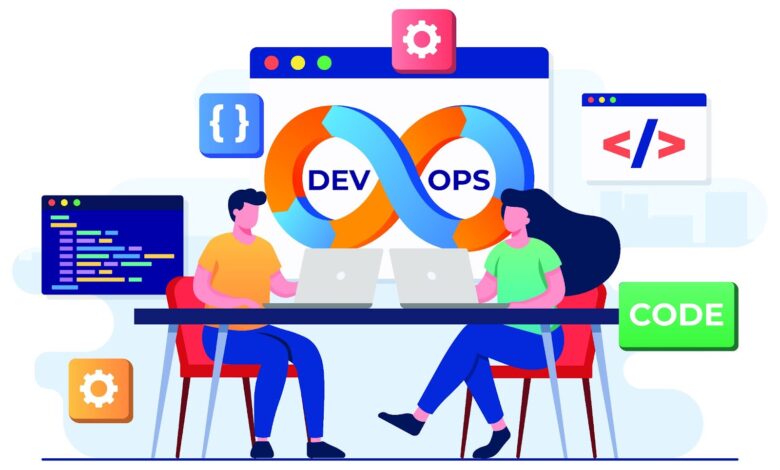15 Essential DevOps Tools Every Developer Should Master

DevOps has emerged as a crucial methodology to streamline workflows, enhance collaboration, and accelerate the delivery of high-quality software in the rapidly evolving software development landscape. At the heart of DevOps lies a plethora of tools designed to automate processes, monitor performance, and ensure seamless integration between development and operations teams. Whether you’re a seasoned developer or a business owner just starting your journey in the world of DevOps, having command over these essential tools is indispensable. Let’s dive into the 15 must-know DevOps tools every developer should have in their arsenal.
#1 Git:
Git needs no introduction; it’s the cornerstone of version control systems. With its distributed nature and powerful branching capabilities, Git enables developers to manage code efficiently, track changes, and collaborate seamlessly. Platforms like GitHub, GitLab, and Bitbucket provide robust hosting services, facilitating collaboration among team members and fostering a culture of code review and contribution.
See also: Technology Meets Health with HUAWEI WATCH D2 Blood Pressure Features
#2 Jenkins:
Automation lies at the heart of DevOps, and Jenkins is a leading open-source automation server that plays a pivotal role in automating various stages of the software delivery pipeline. From building, testing, and deploying applications to orchestrating complex workflows, Jenkins simplifies the DevOps process by enabling continuous integration and continuous delivery (CI/CD). Its extensive plugin ecosystem further enhances its versatility, allowing integration with various tools and technologies.
#3 Docker:
Containerization has revolutionized software development by providing a lightweight, portable solution for packaging applications and their dependencies. Docker, the de facto standard for containerization, empowers developers to build, ship, and run applications consistently across different environments. By encapsulating applications within containers, Docker simplifies deployment and ensures consistency, making it easier to manage complex microservices architectures.
#4 Kubernetes:
As organizations embrace cloud-native technologies and microservices architectures, Kubernetes has emerged as the go-to platform for container orchestration. Kubernetes automates various aspects of container lifecycle management, including deployment, scaling, and load balancing, while ensuring high availability and resilience. Hiring a Kubernetes developer has become common for businesses aiming to streamline containerized application deployment, scaling, and management.
#5 Ansible:
Configuration management is essential for maintaining consistency and repeatability in infrastructure provisioning and management. Ansible, a powerful automation tool, enables developers to define infrastructure as code and automate deployment, configuration, and orchestration tasks across multiple servers. Its agentless architecture, coupled with a simple YAML-based syntax, makes it easy to learn and deploy, accelerating the adoption of infrastructure automation practices.
#6 Terraform:
Infrastructure as code (IaC) is gaining traction as organizations seek to automate infrastructure provisioning and management using declarative configuration files. Terraform, an open-source IaC tool from HashiCorp, enables developers to define infrastructure components as code and provision them across various cloud providers and services. By abstracting infrastructure complexity and providing a consistent workflow, Terraform promotes collaboration and accelerates the deployment of cloud-native applications.
#7 Prometheus:
Monitoring and observability are essential pillars of DevOps, enabling teams to gain insights into application performance, troubleshoot issues, and ensure reliability. Prometheus, an open-source monitoring and alerting toolkit, excels at collecting and storing time-series data, enabling developers to monitor everything from system metrics to application performance. With its powerful querying language and flexible alerting capabilities, Prometheus empowers teams to proactively detect and respond to anomalies.
#8 Grafana:
Visualization transforms raw data into actionable insights, empowering teams to monitor, analyze, and optimize their systems effectively. Grafana, an open-source analytics and visualization platform, complements Prometheus by providing rich dashboards, graphs, and visualizations for exploring and understanding metrics data. Its extensible architecture and support for various data sources make it a versatile tool for building custom dashboards and monitoring solutions.
#9 ELK Stack (Elasticsearch, Logstash, Kibana):
Log management is essential for aggregating, analyzing, and visualizing log data generated by applications and infrastructure components. The ELK Stack (Elasticsearch, Logstash, and Kibana) is known for its log management and analysis. Elasticsearch provides a scalable and distributed search engine for storing and indexing log data, while Logstash facilitates log ingestion and processing. Kibana complements Elasticsearch with its intuitive interface for searching, analyzing, and visualizing log data; therefore making this stack, along with Prometheus for monitoring, highly productive and insightful in terms of performance and stability.
#10 Splunk:
For enterprises requiring robust log management and analytics capabilities, Splunk stands out as a leading solution for monitoring, investigating, and troubleshooting complex environments. Splunk’s powerful search and analytics engine and machine learning capabilities enable organizations to gain deep insights into their data and derive actionable intelligence. From security monitoring to application performance management, Splunk offers various use cases to meet diverse business needs.
#11 Jira:
Project management is essential for coordinating tasks, tracking progress, and ensuring timely delivery of software projects. Jira, a popular project management tool from Atlassian, provides teams with a centralized platform for planning, tracking, and managing agile software development workflows. With features like customizable Scrum and Kanban boards, issue tracking, and real-time collaboration, Jira facilitates effective project planning and execution, fostering collaboration and transparency across teams.
#12 New Relic:
Application performance monitoring (APM) is crucial for identifying performance bottlenecks, optimizing resource utilization, and delivering exceptional user experiences. New Relic offers a comprehensive APM solution that provides real-time insights into application performance, infrastructure health, and user experience metrics. New Relic enables teams to diagnose issues quickly and proactively optimize application performance by monitoring key performance indicators and correlating data across the entire stack.
#13 GitLab:
GitLab is more than just a Git repository management system; it’s a complete DevOps platform that encompasses the entire software development lifecycle. From version control and CI/CD to issue tracking and code review, GitLab provides a seamless and integrated environment for collaborative software development. With features like built-in CI/CD pipelines, Kubernetes integration, and built-in security scanning, GitLab empowers teams to deliver high-quality software faster and more efficiently.
#14 AWS DevOps Tools:
For organizations leveraging Amazon Web Services (AWS) for their cloud infrastructure, AWS offers a suite of DevOps tools designed to streamline development, deployment, and operations in the cloud. AWS CodePipeline enables continuous integration and continuous delivery, while AWS CodeDeploy automates deployment to EC2 instances and Lambda functions. With services like AWS CloudFormation for infrastructure as code and AWS CloudWatch for monitoring and logging, AWS provides a comprehensive ecosystem for building and managing cloud-native applications.
#15 Azure DevOps:
Microsoft Azure DevOps provides a set of tools and services for collaborating on software development projects, automating build and release pipelines, and managing software development workflows. Azure DevOps Services offers features like Azure Repos for Git repositories, Azure Pipelines for CI/CD, Azure Boards for project management, and Azure Artifacts for package management. Whether you’re developing applications for the cloud or on-premises environments, Azure DevOps simplifies the DevOps process and accelerates the delivery of high-quality software.
In conclusion, understanding these essential DevOps tools is also paramount for eCommerce business owners seeking to bolster their online presence and streamline operations. As you look to hire DevOps engineers from leading eCommerce design and development agencies like CodeClouds, it’s also crucial to ensure that your requirements fall in line with their expertise in these tools to drive efficiency and innovation in your digital ecosystem. From version control and automation to monitoring and analytics, proficiency in these tools equips your team to collaborate effectively, automate repetitive tasks, and deliver exceptional customer experiences. By partnering with agencies that prioritize DevOps excellence, you can harness the power of these tools to accelerate your eCommerce growth, stay ahead of the competition, and meet the evolving needs of your customers in today’s dynamic marketplace.





